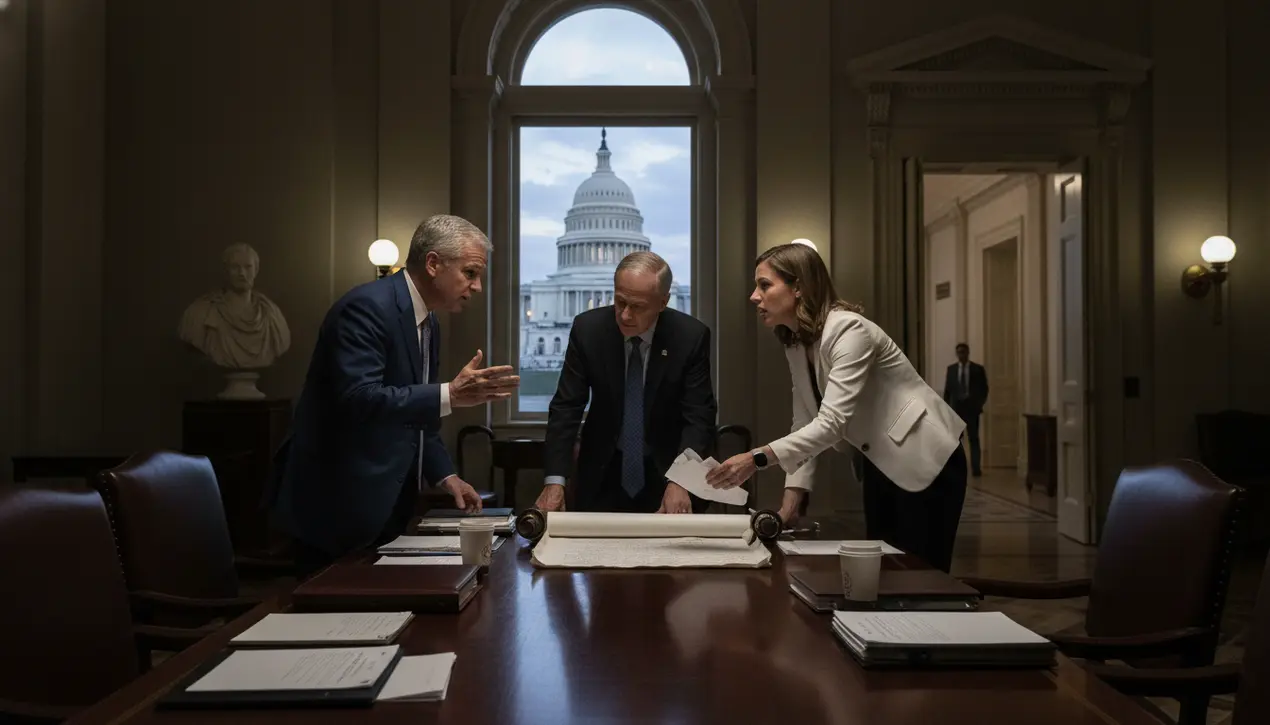
PoliticslegislationHealthcare Policies
Senate faces roadblocks in last-ditch health care negotiations.
RO
Robert Hayes
2 hours ago7 min read2 comments
The United States Senate finds itself navigating a familiar yet treacherous political landscape as it engages in last-ditch negotiations over the future of the Affordable Care Act's enhanced tax credits, a policy cornerstone affecting millions of Americans' access to healthcare. At stake is the financial stability of individuals relying on ACA exchange plans, who face the prospect of their coverage costs doubling next year should a bipartisan compromise fail to materialize before the expiration of subsidies initially augmented during the COVID-19 pandemic.While a cautious optimism permeates discussions among senators from both parties, significant political headwinds threaten to scuttle any potential agreement, echoing historical legislative impasses where ideological purity triumphed over pragmatic necessity. The Senate Finance Committee, under the stewardship of Chairman Mike Crapo (R-Idaho), is poised to assume a central role in these deliberations, with its upcoming hearing on health care costs serving as the public unveiling of debates previously confined to closed-door sessions.The political calculus is complex; Democrats, led by Ranking Member Ron Wyden (D-Ore. ) and Minority Leader Chuck Schumer (D-N.Y. ), enter negotiations from a position of perceived strength on health care issues, advocating for a clean extension of the subsidies.Conversely, the Republican conference, reflecting the internal dynamics of a party grappling with its policy identity, has adamantly insisted that any deal must be short-term and bundled with substantive reforms. These proposed reforms, as articulated by key GOP voices like Senator Roger Marshall of Kansas, include reinstating income caps on subsidy eligibility—a measure Senator Jeanne Shaheen (D-N.H. ) has indicated could be a reasonable point of negotiation—and addressing purported fraud within the system by potentially instituting a nominal premium to replace $0 premium plans.However, the most formidable obstacle to a bipartisan accord may well be the Hyde amendment, the perennial legislative rider restricting federal funding for abortion, which Senator Katie Britt (R-Ala. ) and many of her colleagues have declared a non-negotiable component of any package, thereby injecting one of the nation's most polarizing social issues into an already fragile negotiation.The legislative pathway grows even more convoluted beyond the Senate's walls, where House Speaker Mike Johnson (R-La. ) offers no guarantee of bringing a Senate-passed deal to the floor, and former President Trump's recent social media commentary, which critiques the ACA broadly rather than endorsing the continuation of its expiring credits, casts a long shadow over the proceedings.This intricate dance recalls the failed attempts at comprehensive health care reform in previous administrations, where the collision of partisan priorities and procedural hurdles often resulted in legislative inertia. The involvement of figures like Senator Bill Cassidy (R-La.), a trained physician and HELP Committee chairman who is championing an alternative proposal involving flexible spending accounts, illustrates the diversity of thought within the GOP, yet it also highlights the challenge of forging a unified Republican position. As Senator Chuck Grassley (R-Iowa) noted, a consensus remains elusive, yet the narrow window for action and the tangible consequences of failure—premium shocks for constituents—create a powerful, if fragile, impetus for compromise. The ultimate outcome will serve as a critical test of whether the current Congress can transcend its partisan divisions to address a pressing domestic concern, or if it will succumb to the same forces that have historically stymied significant health care legislation.
#Affordable Care Act
#Senate negotiations
#tax credits
#healthcare costs
#bipartisan deal
#Hyde amendment
#featured
Stay Informed. Act Smarter.
Get weekly highlights, major headlines, and expert insights — then put your knowledge to work in our live prediction markets.
Related News
Comments
Loading comments...
© 2025 Outpoll Service LTD. All rights reserved.